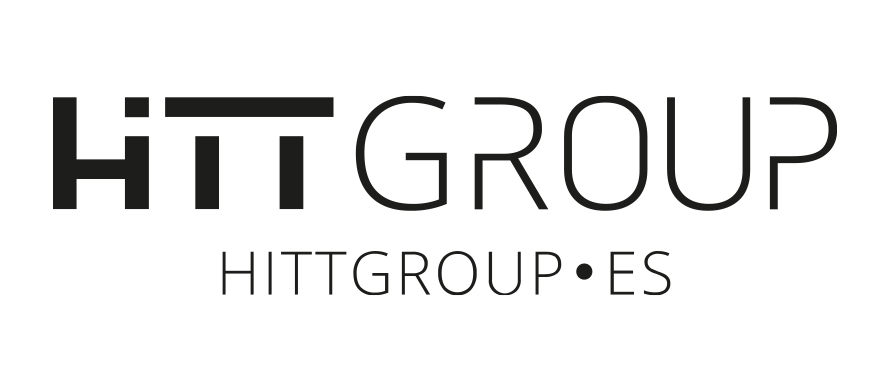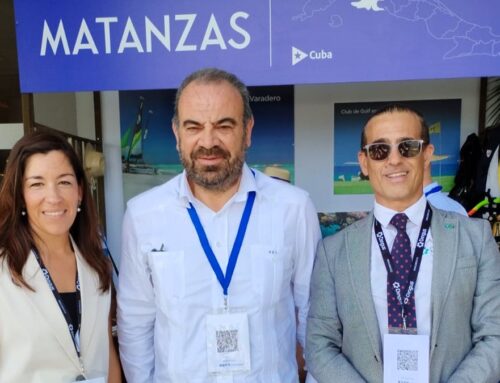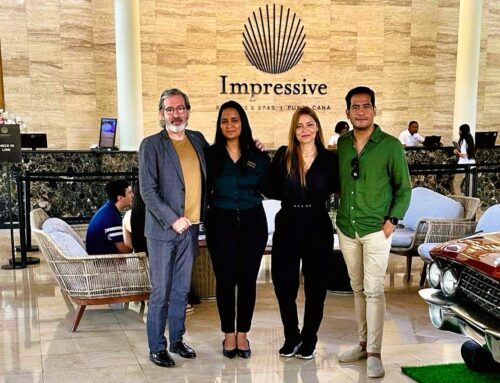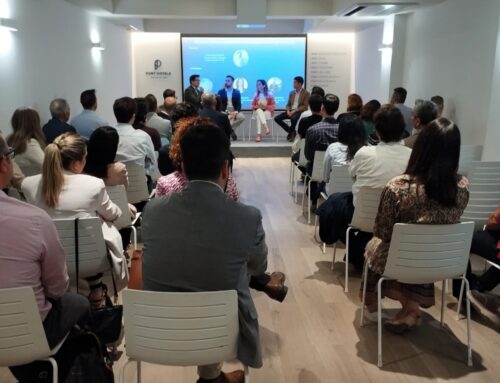In the last 10 years there has been a lot of talk about the digital transformation of companies and it is true that large and multinationals were working on it. However, the fabric of SMEs (95% of Spanish companies), in its vast majority, ignored digitalisation. But a pandemic arrived and the blow when it hit reality was terrible: teleworking and having Teams or Zoom does not digitally transform your company. In fact, our way of working, the company’s processes, the way we communicate with the different stakeholders and even our computer, were not suitable for this new environment.
To be a digitalised company, we need flexible and dynamic structures and processes that can adapt almost immediately to the changes in reality that we are experiencing. Jaume Monserrat, as president of the Turistec Cluster, explained this very well in a talk at the University of the Balearic Islands (UIB): “strategy, and not technology, is what really directs the digital transformation of companies”. For this reason, COVID 19 is acting as an element of natural selection for companies, especially in the world of tourism. Given this panorama, what can we do?. Well, we have two options.
Option 1: Letting you go. Subsidised financial credits will help you to cushion your fall a little. Recover old habits such as reading, walking on the beach/mountain… everything that at one time in your life filled you up and is free. Because if we let ourselves go, we can only afford everything that is free.
Option 2: take the opportunity to rethink your business. This is very easy to say, but very difficult to undertake. But like everything in life, you don’t have to go from 0 to 100 in a day. You just have to be constant and cover all areas of your business (does strategy sound familiar to you, not technology?).
If I focus on the marketing part, I think what matters now is to generate revenue in order to continue operations as soon as possible. Only in this way will we reach the profit.
- Let’s start with the direct sale of your hotel and the very fashionable meta-search engines (goals, for those who know), which are not OTAS, but information aggregators like Google and have evolved to become just another sales channel. These offer a new marketing channel that dramatically reduces the costs that OTAS have. But who uses meta-search engines to book? Well, 54% of the Chinese market, 42% of the German market, 35% of the English market… not insignificant. Positive point for the meta-search. On the negative side: you have to know how to use them.
- Continuing with the direct sale, and taking advantage of the traffic that the goals bring us, we arrive at the hotel’s website. At this point, we should differentiate between fireworks and sales. The website may be pretty (photos, videos…) but it is not very ‘selling’. The booking engine is fundamental. It is the tool that will allow us to manage and close the sale, and in this equation, it is just as important to ‘manage’ as to ‘close’. Because our website and our engine must allow us to create loyalty schemes, promotions and cross selling. Only in this way can we add value to the sale and, consequently, to the end customer. A positive point, greater margin and customer knowledge; it allows me to improve their user experience and increase my brand value, improving the positioning of my establishment. On the negative side, it requires good technology and strategy to apply it.
- But for most hotel establishments, direct sales will not save the year. Because changes in marketing strategy are slow and you have to know how far you can go. That is why we will continue to depend on indirect sales, at least in the short and medium term.
- Indirect selling, right now, can be a good solution to increase the customer base and diversify the risk of the countries of origin. To do this, it is necessary to have a good channel manager that allows me not only to attract audiences from different countries, but also to have a good integration with those distribution channels. Why a good integration? Because being connected to booking.com, for example, is not the same as having a channel that is a premium partner of booking.com, as is the case with Dingus. This means that, from the channel itself, I can take advantage of all the functions and promotions that the operator allows. And this increases sales immediately. And this, does it cost money? Not at first. Because the channel will charge you a flat rate, whatever you do. So, take advantage of all the possibilities it offers. On the plus side, it increases sales and reduces the risk of origin. On the negative side, you have to work. Let it all be that…
These 4 fast tracks to increase marketing are supported by two fundamental pillars. Technology and security.
The technology of a hotel establishment has two names: PMS (to manage internal operations) and CRS (the reservation centre that allows me to manage my distribution map). Well, these two elements must be connected and integrated, because this will allow us to manage our hotel establishment in real time and improve our margins by increasing efficiency.
The second pillar is security. Our clients want to feel safe from the first moment they come into contact with our hotel. He wants his data to be safe (compliance with the Data Protection Act), he wants to have security in payment (compliance with PCI regulations, using a collection manager such as Book and Payment) and he wants to feel safe in the hotel (there are proposals such as that of RSM which uses Blockchain technology to inform hotel guests about the cleanliness of their rooms and common areas).
Take advantage of the offers that are available now to make changes. Look for suppliers who do not work on commission (they will be short lived if there are no sales and will be expensive when things go well). And, above all, that they know about tourism. A hotel does not need a website like a supermarket. There is no trolley here. There is a booking engine! By the way, you will see that you also want security. You will ask for your ISOS and other certificates. A hotelier knows what a certification costs and values it. Only then you will be sure and can change suppliers with confidence. Once here, we will be able to turn all our processes around and really digitise our company. Although good, walking on the beach is not a bad plan either…
Alejandro Alegret
Business development for mass consumption and tourism
Marketing Consultant
Lecturer on the Master’s in Hotel Management at the Ostelea School of Tourism












